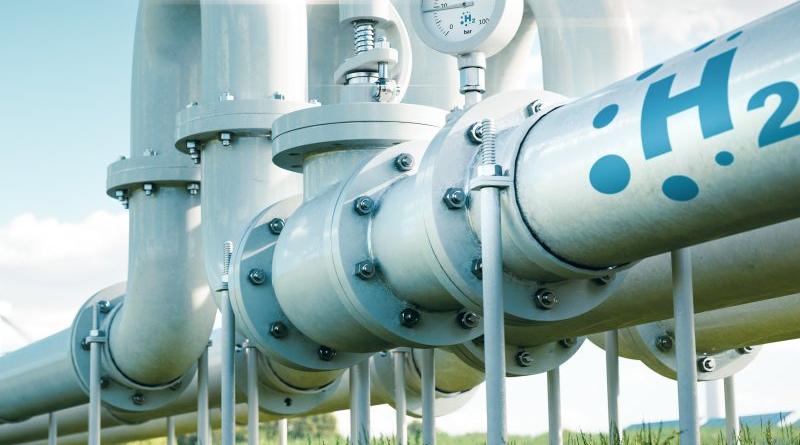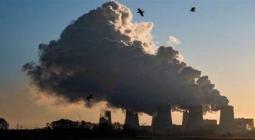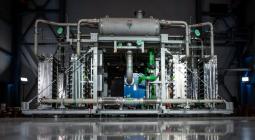Anxious hydrogen market holding back on investments due to EU uncertainty

The hydrogen industry is cautious about making final investment decisions in Europe as EU regulators struggle to complete the bloc's regulatory puzzle.
The EU expects hydrogen to contribute about 15% to the bloc's energy mix by 2050, and has been busy creating framework laws for this, like the renewable energy directive (RED) and the 2022 hydrogen and decarbonised gas market package .
In addition, the EU has adopted ambitious 2030 targets of 10 million tonnes of domestic hydrogen production and 10 million tonnes of import in a bid to reduce its reliance on Russian gas.
But none of this appears to have motivated the industry.
"You can sense among industry players a sense of hesitation on whether it is the right moment to move from projects on paper to final investment decisions," said Stefano Grassi, chief of cabinet of the EU's energy commissioner Kadri Simson.
For him, this is a sign that the European Union must "double down" on efforts to complete the legal framework, he told participants at a recent EURACTIV event .
"We need to nail down this year the gas and hydrogen market package. We need to nail down the Net Zero Industry Act and the last pieces of a regulatory puzzle. We need to make the European Hydrogen Bank operational," he said.
The above are the latest additions to an ever-growing web of legislation touching hydrogen.
"We also need to tackle a more simple legislative framework," said Thierry Trouvé, the CEO of the French gas company GRTgaz, who also spoke at the event.
Hydrogen experts will be familiar with the industry's plea: a lack of rules on renewable hydrogen production were previously put forward as the main reason for blocking investments in the sector.
At least ten different EU laws – some already adopted, others in course of adoption – are currently touching on either the production of hydrogen molecules themselves, the related infrastructure, funding for projects, or use targets.
Some of these rules seem increasingly out of touch. For instance, the EU has a sub-target for hydrogen use in transport even though hydrogen car sales in a country like Germany currently totals less than 200 units in the first half of 2023.
As a result, industry actors increasingly chafe under the weight of accumulated regulation.
All the laws governing hydrogen “are not really helping the development of the sector and the cost because it brings a lot of uncertainty to the producers and the consumers,” Trouvé said.
Maria Spyriaki, a Greek EU lawmaker from the centre-right European People’s Party (EPP) argues that a quick adoption of the gas and hydrogen package would help send a clear signal to markets. The first auction by the European Hydrogen Bank, expected in the autumn, will also help.
“These are not all but some of the instruments that we can use to send a clear message to the market and to stabilise the market to create a hydrogen market,” she stressed.
Pipelines being laid?
Meanwhile, the arteries of a future hydrogen network that will transport renewable hydrogen from sunny or windy regions to the bloc’s industrial heartlands are taking shape: pipeline projects are becoming increasingly concrete.
In late 2022, Paris and Madrid finally agreed to build a hydrogen pipeline capable of transporting 2 million tonnes of hydrogen per annum across the two countries. Berlin joined in later to extend the pipeline to Germany.
Industry demand “will have fundamental effects and will be a strong incentive to build infrastructure” in the future, explained Raphael Hanoteaux, a senior expert at the climate think-tank E3G, who also spoke at the event.
A similarly-sized pipeline is slated to begin construction to funnel hydrogen from Norway into Germany, too.But Hanoteaux is inherently sceptical about these ambitions. “Why would it go to the German industry” instead of being used locally, he asked.
Cabinet chief Grassi, for his part, is more optimistic about a future EU hydrogen network.
"Both Portugal and Spain are very renewable rich. They have very low cost of electricity, potentially, from renewables," he explained. Meanwhile, all the demand centers are located further North, he added.
Thus far, construction of large-scale hydrogen pipelines has yet to kick off – the industry is waiting for the dust to settle on the rules currently being negotiated between EU countries and parliament.
cover photo: The hydrogen industry is cautious about making final investment decisions in Europe as EU regulators struggle to complete the bloc's regulatory puzzle. [Shutterstock/petrmalinak]





